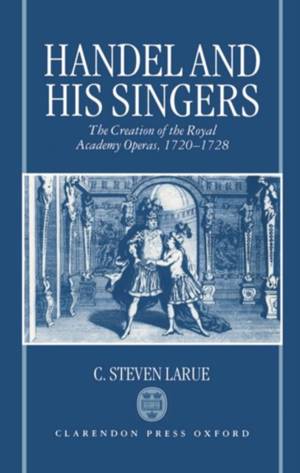
- Afhalen na 1 uur in een winkel met voorraad
- Gratis thuislevering in België vanaf € 30
- Ruim aanbod met 7 miljoen producten
- Afhalen na 1 uur in een winkel met voorraad
- Gratis thuislevering in België vanaf € 30
- Ruim aanbod met 7 miljoen producten
Zoeken
€ 354,45
+ 708 punten
Omschrijving
From the early eighteenth-century until the present day, opera seria as practiced by Handel and his contemporaries has been the subject of satire and even derision for its dramatic artifice and virtuosic vocal displays. Close examination of Handel's autograph manuscripts, the libretti upon which they were based, and other contemporary documents reveal the extent to which Handel was influenced by his singers and their abilities in creating his commercially successful and dramatically effective operas. Drawing on ideas and evidence from these sources, this study demonstrates the fact that Handel's singers were the single most important influence in his opera composition during his tenure as composer and music director of the Royal Academy of Music from 1719-28.
Specificaties
Betrokkenen
- Auteur(s):
- Uitgeverij:
Inhoud
- Aantal bladzijden:
- 228
- Taal:
- Engels
- Reeks:
Eigenschappen
- Productcode (EAN):
- 9780198163152
- Verschijningsdatum:
- 10/08/1995
- Uitvoering:
- Hardcover
- Formaat:
- Genaaid
- Afmetingen:
- 158 mm x 237 mm
- Gewicht:
- 517 g

Alleen bij Standaard Boekhandel
+ 708 punten op je klantenkaart van Standaard Boekhandel
Beoordelingen
We publiceren alleen reviews die voldoen aan de voorwaarden voor reviews. Bekijk onze voorwaarden voor reviews.











